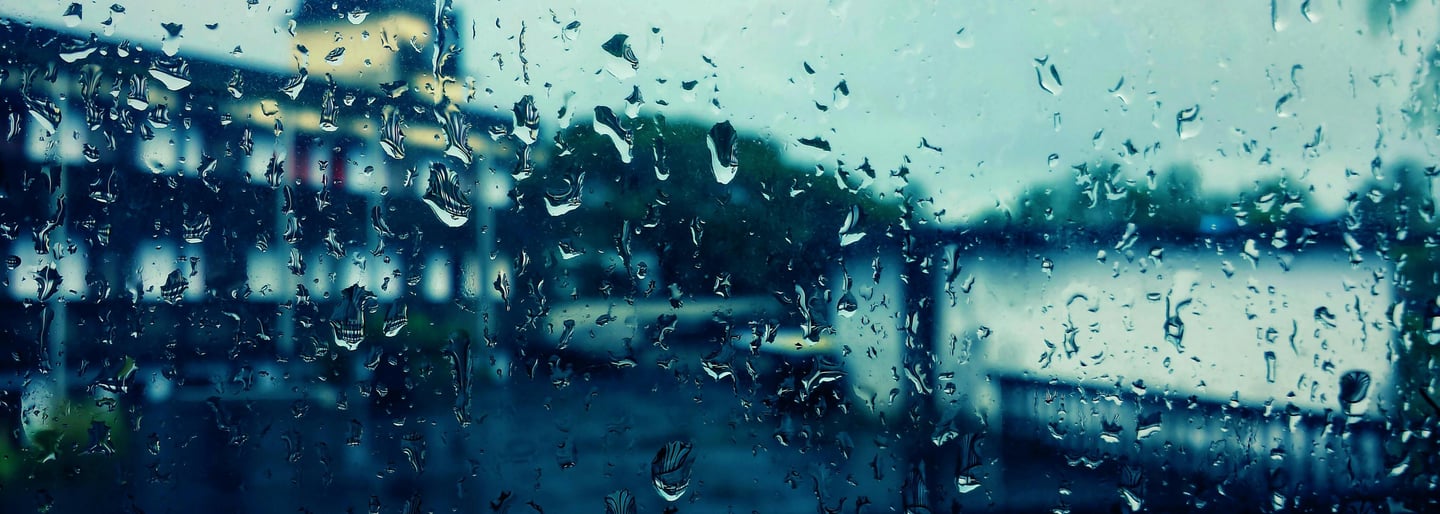Would Rainwater Dirty My Windows After I've Had Them Cleaned?
Uncover how rain affects your clean windows with Elegant Restorations. Get expert tips to keep your windows spotless, rain or shine. Read our concise guide now!
Alex Flores
5/22/20243 min read
Understanding the Composition of Rainwater
Rainwater, in its journey from clouds to the earth, is fundamentally different from the groundwater we typically encounter. Unlike groundwater, rainwater does not contain the hard minerals such as calcium and magnesium, which are responsible for the hardness in tap water. This absence of hard minerals makes rainwater inherently softer. The process of rain formation begins with the evaporation of water from the earth's surface, which then condenses in the atmosphere to form clouds. As these water droplets merge and grow, they eventually fall to the ground as rain.
However, the purity of rainwater is not absolute. As rainwater descends through the atmosphere, it can collect various airborne particles and contaminants. These may include dust, pollen, and even pollutants like sulfur dioxide and nitrogen oxides from industrial emissions. Despite this, rainwater remains considerably softer than groundwater because it lacks the mineral content that typically causes water spots and deposits. The primary concern with rainwater is the potential for it to carry pollutants, particularly in urban or industrial areas where air quality might be compromised.
There are several misconceptions about rainwater and its effects on windows. A common belief is that rain can leave spots or dirty windows after they have been cleaned. While rainwater can indeed carry pollutants and particulates, the likelihood of it leaving significant deposits on windows is relatively low compared to the residue left by hard groundwater. The clarity of windows post-rain largely depends on the environmental factors and the level of atmospheric pollutants in a given area.
In areas with high levels of air pollution, rainwater may contain more contaminants, which can potentially impact the cleanliness of windows. Conversely, in regions with cleaner air, rainwater might have minimal effect on windows. Understanding these nuances can help in managing expectations regarding window cleanliness post-rainfall and in dispelling myths about rainwater's impact on windows.
The Impact of Rainwater on Clean Windows
When it comes to the cleanliness of your windows, the impact of rainwater is often a point of concern. Rainwater, by its very nature, is considered "soft" as it generally lacks the hard minerals found in tap water. This absence of hard minerals makes rainwater less likely to leave behind those undesirable mineral deposits or streaks that can mar the appearance of freshly cleaned windows. However, it's essential to consider other factors that can influence the outcome.
One significant aspect is the presence of dirt, dust, and various airborne particles that are ever-present in our environment. When rainwater falls, it can mix with these particles, leading to a potential build-up on your windows. This combination can make your windows appear dirty, even shortly after a professional cleaning. In urban areas, pollutants from car exhausts and industrial activities can exacerbate this problem, making it crucial to understand how to mitigate these effects.
To minimize the impact of rain on clean windows, several strategies can be employed. Firstly, ensuring proper drainage around your windows can prevent water from pooling and attracting more dirt. Water-repellent treatments are another effective measure, as they create a barrier that repels water and reduces the chances of dirt adhering to the glass surface. These treatments can be particularly beneficial during heavy rainfall.
Regular maintenance is also key to keeping windows looking pristine. Establishing a consistent cleaning schedule, even in the face of frequent rain, can help maintain the clarity and shine of your windows. By addressing dirt and grime promptly, you can prevent the accumulation of residues that can become more challenging to remove over time.
Incorporating these practices into your window maintenance routine can help ensure that the beauty and transparency of your windows are preserved, even in the face of unpredictable weather conditions. While rainwater itself is not inherently damaging, the comprehensive approach to window care can make a significant difference in maintaining their pristine condition.
Hours
Monday
Tuesday
Wednesday
Thursday
Friday
Saturday
Sunday
7:00am - 7:00pm
7:00am - 7:00pm
7:00am - 7:00pm
7:00am - 7:00pm
7:00am - 7:00pm
7:00am - 12:00pm
Closed
210) 850-8084
San Antonio, Tx 78254


